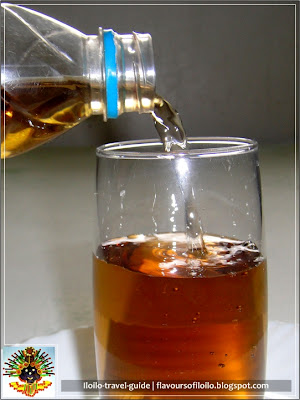
“If a bubbly drink helps you drink more fluid and keep your calories low for weight loss, then I believe it can be a part of a healthy eating plan,” Goodson says. In the end, it really comes down to how these beverages fit into your diet. “It’s important to note that lots of things can stimulate hunger and many people that sleep too little, experience stress and yo-yo diet could fall prey to increased hunger.” In other words, there are a lot of things that can cause an increased appetite, and while flavored sparkling water might be one of them, it’s probably less impactful than lifestyle practices that are shown to have a bigger impact. Goodson agrees, noting that there is no solid evidence carbonation alone (or at all) causes weight gain. “The research did not directly tie sparkling water to weight gain.” “However, the study didn’t account for external factors that could have influenced weight gain such as an unhealthy diet or lack of exercise,” she says. That doesn’t sound great for sparkling water. “In the study, those who drank carbonated water had ghrelin (hunger hormone) levels six times higher than those drinking regular water, and three times higher than those drinking non-carbonated sodas,” Beckerman notes. Those who are against flavored sparkling water often point to research, published in the journal Obesity Research and Clinical Practice, which found carbonation might cause weight gain, as a reason to avoid it at all costs. “This is because the carbonation takes up more space in the stomach, and is said to increase both gastric activity as well as heart rate, which can contribute to feelings of fullness.” Though it’s unlikely to have a major impact on satiety over the course of a day, sparkling water may be enough to prevent unplanned snacking in a pinch, she says. “One reason why sparkling water is so popular with dieters is because, when compared to plain water, consuming carbonated beverages on an empty stomach is significantly more filling,” Beckerman explains. Here’s what nutrition experts have to say:
#FAQT BURNING INFUSED WATER FULL#
“However, many dieters don’t want to give up their favorite taste and flavors, so they look to these artificially sweetened beverages to ‘sweeten’ their day and feel less deprived.” Plus, some people don’t like the taste (or lack thereof) of water, Goodson adds.īut are these beverages actually good for you, especially if you’re trying to lose weight? Are they akin to diet soda, full of artificial sweeteners? Or do they just make you crave other sweet flavors, sabotaging your healthy eating plans? “Dieters are looking for ways to cut calories to promote weight loss,” explains Amy Goodson, a registered dietitian and nutrition consultant. And it should be no surprise that 0-calorie flavored sparkling water is an extremely popular choice, whether your goal is to lose weight or simply maintain.

Sparkling, flavored, mineral, electrolyte - you name it.


It comes with a package of benefits attached. But cucumber lemonade, lemon mint juice, and mint lemonade are equally helpful. So, of course, one of the most common forms is lemonade. It is the most trending and sought drink nowadays for weight loss. You can even call it cleansing water as it cleans your body from the inside, ridding it of toxins. The name derivation is because of the quality of infused water to remove toxins from our bodies. The idea is to dissolve and spread the nutrients of the ingredients so that it alters the water nutrients for the better. You can leave them in water for however long you think is needed. Infused Water is water with pieces of fruits, vegetables, and herbs left in the water container. Since watermelon itself is a highly beneficial fruit, especially for beating the summer, this drink is a must-try for everyone. Nevertheless, it is one of the best beverages to drink after a workout – even better than any other drink for losing weight. However, people are crazier behind this because of its weight loss tendencies.

This drink is refreshing and cooling enough to keep you hydrated during summer.


 0 kommentar(er)
0 kommentar(er)
